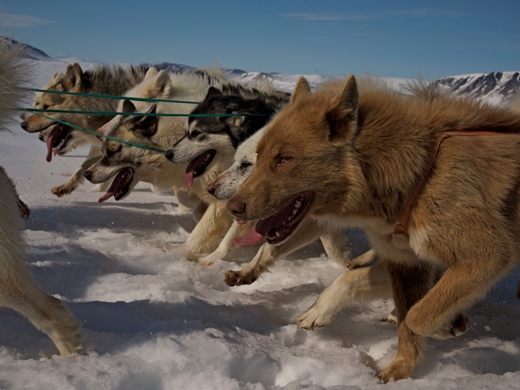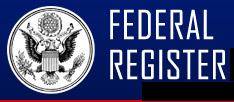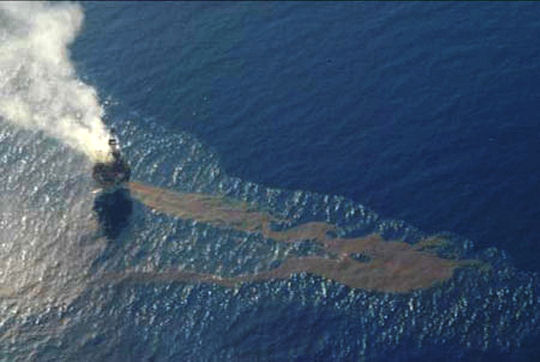|
|
|
|
|
|
|
|
No Arctic-science events are announce for today.
|
Media
V ladimir Rusanov Completes First Eastern Transit Via Northern Sea Route. Mitsui O.S.K. Lines, Ltd. (MOL) announced that the Ice-Breaking LNG Carrier "Vladimir Rusanov", which is jointly owned by MOL and China COSCO Shipping Corporation Limited (China COSCO Shipping), has successfully arrived at the Bering Strait. The vessel carried out a LNG loading operation in the Yamal LNG plant at Sabetta port, before sailing for the Far East via the Northern Sea Route on 25 June. The vessel safely arrived at the Bering Strait on 6 July, and is planning to call Jiangsu Rudong port in China for an unloading operation of its LNG cargo. American Journal of Transportation
 The Evolutionary History of Dogs in the Americas. The Evolutionary History of Dogs in the Americas. Dogs were present in the Americas before the arrival of European colonists, but the origin and fate of these precontact dogs are largely unknown. We sequenced 71 mitochondrial and 7 nuclear genomes from ancient North American and Siberian dogs from time frames spanning ~9000 years. Our analysis indicates that American dogs were not derived from North American wolves. Instead, American dogs form a monophyletic lineage that likely originated in Siberia and dispersed into the Americas alongside people. After the arrival of Europeans, native American dogs almost completely disappeared, leaving a minimal genetic legacy in modern dog populations. The closest detectable extant lineage to precontact American dogs is the canine transmissible venereal tumor, a contagious cancer clone derived from an individual dog that lived up to 8000 years ago. Science Magazine
Coast Guard Moves North for 'Arctic Shield' 2018. U.S. Coast Guard is on the ground and in the air in northwest Alaska for the summer. Coast Guard opened Saturday its forward operating location in Kotzebue for the 10th year of Operation Arctic Shield. Arctic Shield is intended "to support Coast Guard missions in response to increased maritime activity in the Arctic," according to a news release. KTOO
 Bureau of Ocean Energy Management Quarterly Report. Bureau of Ocean Energy Management Quarterly Report. During the first quarter of fiscal year (FY) 2018, BOEM posted new findings from 11 studies to the Environmental Studies Program Information System (ESPIS). Below are report titles, summaries of the findings, links to documents, and related peer-reviewed journal articles. The Alaska-specific studies include: Hanna Shoal Ecosystem Study; Applications For Mapping Spilled Oil In Arctic Waters; Testing the Use of Unmanned Aircraft Systems for Intertidal Surveys; Marine Arctic Ecosystem Study (MARES) Marine Mammals Tagging and Tracking; and Approaches to Understanding the Cumulative Effects of Stressors on Marine Mammals. BOEM
 Science and Technology for America's Oceans: A Decadal Vision. Science and Technology for America's Oceans: A Decadal Vision. The Office of Oceanic and Atmospheric Research on behalf of the National Science and Technology Council; Committee on Environment; Subcommittee on Ocean Science and Technology (SOST) is requesting input on the content of a report, Science and Technology for America's Oceans: A Decadal Vision. The SOST is chartered under the National Science and Technology Council to advise and assist on national issues related to ocean science and technology. The SOST contributes to the goals for Federal ocean science and technology, including identifying priorities and developing coordinated interagency strategies. Science and Technology for America's Oceans: A Decadal Vision identifies pressing research needs and areas of opportunity within the ocean S&T enterprise for the coming decade, 2018-2028. The aim of this document is not to prescribe policies but to provide guidance for U.S. Federal agencies and non-federal sectors to align their resources and areas of expertise, and further build the scientific and technological foundation that will improve our knowledge and stewardship of the ocean, address issues of national and global importance, and inform decision-making for the coming decade. Federal Register
|
|
Future Events
 Coastal Response Research Center Requests Input on the State of Science on Dispersant Use in the Arctic. The Coastal Response Research Center (CRRC) recently collected statements and reports on five topic areas related to dispersant use in the Arctic: efficacy and effectiveness; physical transport and chemical behavior; degradation and fate; eco-toxicity and sublethal impacts; and, public health and food safety. CRRC request written input on the statements the scientists made on the state-of-the-science regarding dispersant use, particularly as it applies to Arctic waters. Written comments are requested by July 13th. More information on this initiative is available here. Coastal Response Research Center Requests Input on the State of Science on Dispersant Use in the Arctic. The Coastal Response Research Center (CRRC) recently collected statements and reports on five topic areas related to dispersant use in the Arctic: efficacy and effectiveness; physical transport and chemical behavior; degradation and fate; eco-toxicity and sublethal impacts; and, public health and food safety. CRRC request written input on the statements the scientists made on the state-of-the-science regarding dispersant use, particularly as it applies to Arctic waters. Written comments are requested by July 13th. More information on this initiative is available here.
17th International Congress of Circumpolar Health (ICCH17), August 12-15, 2018 (Copenhagen, Denmark). The ICCH congresses are held every third year in different locations in the circumpolar area and represent the largest scientific meetings worldwide on circumpolar health. The ICCH congresses serve as the primary source of information exchange and scholarly communication in issues relating to circumpolar health. More than 750 participants generally register and participate in each Congress, and more than 400 scientific papers or posters are usually presented.
UArctic Congress 2018, September 3-7, 2018 (Oulu and Helsinki, Finland). The UArctic Congress 2018 will bring together key UArctic meetings and a science conference into one single gathering, including business meetings of the Council of UArctic, Rectors' Forum, Student Forum, and Thematic Networks & UArctic Institutes Leadership Team. The Congress is an integral part of the Finland's Arctic Council chairmanship program, and open to the public. The event will highlight the themes and priorities of the Finnish chairmanship, including the goals of the United Nations' 2030 Agenda for Sustainable Development, and the Paris Agreement under the UN Framework Convention on Climate Change.
Scientific Exploration of the Arctic and North Pacific (SEA-NorP), September 25-27, 2018 (Mt. Hood, Oregon USA). This workshop will include discussion of hypotheses that can be tested by scientific drilling in the region, the technology necessary to achieve those goals, ideal sites for drilling based on existing data, and where additional site survey data is needed. The goal of the workshop organizers is that multiple proposals will be initiated at the workshop, both for full cruise legs and for shorter, targeted expeditions around the following themes: ocean gateways, geohazards, volatile cycling, ice histories at transition zones, biosphere and climate.
The second Arctic Biodiversity Congress is hosted by the Conservation of Arctic Flora and Fauna (CAFF), the biodiversity working group of the Arctic Council, and the Ministry of the Environment, Finland. The second Arctic Biodiversity Congress will build on the success of the first Congress, held in 2014 in Trondheim, Norway, and will bring together scientists, policymakers government officials, Indigenous representatives, Traditional Knowledge holders, industry, non-governmental organizations, and others to promote the conservation and sustainable use of Arctic biodiversity.
** New this week ** Arctic Circle Assembly, October 2018 (Reykjavik, Iceland). The annual Arctic Circle Assembly is the largest annual international gathering on the Arctic, attended by more than 2000 participants from 60 countries. It is attended by heads of states and governments, ministers, members of parliaments, officials, experts, scientists, entrepreneurs, business leaders, indigenous representatives, environmentalists, students, activists and others from the growing international community of partners and participants interested in the future of the Arctic.
** New this week ** Arctic Science Forum Associated with the 2nd Arctic Science Ministerial, October 25, 2018 (Berlin, Germany and via webcast). How vulnerable and how resilient are nature and the people of the Arctic region? How well do we understand the regional and global dynamics which are driving change in the Arctic? What impact will change in the Arctic have on us? These and other questions are the focus of this two-day conference. It will take interdisciplinary research in the Arctic to gain an understanding of past and future processes - a complex and cost-intensive venture. This makes an international network of Arctic research so important for delivering better results. Cooperation in research, the exchange of data, collaborative observation and monitoring schemes - international cooperation is imperative in research on the Arctic. Only the Science Forum on October 25th will be webcast.
** New this week ** American Geophysical Union Fall meeting, December 10-14, 2018 (Washington, DC USA). The AGU 2018 Fall Meeting will mark another dynamic year of discovery in Earth and space science, serve as the advent of AGU's Centennial year, and provide a special opportunity to share our science with world leaders in Washington, D.C. As the largest Earth and space science gathering in the world, the Fall Meeting places you in the center of a global community of scientists drawn from myriad fields of study whose work protects the health and welfare of people worldwide, spurs innovation, and informs decisions that are critical to the sustainability of the Earth.
** New this week ** Arctic Frontiers, January 20-25, 2019 (Tromso, Norway). The Arctic Frontiers started out in 2006 assembling the first global scientific conference on economic, societal and environmental sustainable growth in the north. In January 2019, the hosts will arrange the 13th conference with the theme "Smart Arctic". The conference has a pan arctic perspective and builds new partnerships across nations, generations and ethnic groups. Arctic Frontiers provides a forum for dialogue and communication between science, government and industry in the Arctic. In 2019, the Arctic Frontiers plenary program will have five main sessions with the following tentative working titles: State of the Arctic, Blue Growth, Smart Solutions, Bridging the gap and Arctic business prospects. Following the plenary, we will organize an abstract driven science program addressing Plastics in the Ocean, the Future of Governance and Handling Vulnerability in Arctic Ecosystems, State of the Arctic and A Smart Arctic Future.
|
|

  
4350 N. Fairfax Drive, Suite 510
Arlington, VA 22203, USA
External links in this publication, and on the USARC's World Wide Web site ( www.arctic.gov) do not constitute endorsement by the US Arctic Research Commission of external Web sites or the information, products or services contained therein. For other than authorized activities, the USARC does not exercise any editorial control over the information you may find at these locations. These links are provided consistent with the stated purpose of this newsletter and the USARC Web site.
|
|
|
|
|
|
|
|
|
 The Evolutionary History of Dogs in the Americas. Dogs were present in the Americas before the arrival of European colonists, but the origin and fate of these precontact dogs are largely unknown. We sequenced 71 mitochondrial and 7 nuclear genomes from ancient North American and Siberian dogs from time frames spanning ~9000 years. Our analysis indicates that American dogs were not derived from North American wolves. Instead, American dogs form a monophyletic lineage that likely originated in Siberia and dispersed into the Americas alongside people. After the arrival of Europeans, native American dogs almost completely disappeared, leaving a minimal genetic legacy in modern dog populations. The closest detectable extant lineage to precontact American dogs is the canine transmissible venereal tumor, a contagious cancer clone derived from an individual dog that lived up to 8000 years ago. Science Magazine
The Evolutionary History of Dogs in the Americas. Dogs were present in the Americas before the arrival of European colonists, but the origin and fate of these precontact dogs are largely unknown. We sequenced 71 mitochondrial and 7 nuclear genomes from ancient North American and Siberian dogs from time frames spanning ~9000 years. Our analysis indicates that American dogs were not derived from North American wolves. Instead, American dogs form a monophyletic lineage that likely originated in Siberia and dispersed into the Americas alongside people. After the arrival of Europeans, native American dogs almost completely disappeared, leaving a minimal genetic legacy in modern dog populations. The closest detectable extant lineage to precontact American dogs is the canine transmissible venereal tumor, a contagious cancer clone derived from an individual dog that lived up to 8000 years ago. Science Magazine Bureau of Ocean Energy Management Quarterly Report. During the first quarter of fiscal year (FY) 2018, BOEM posted new findings from 11 studies to the Environmental Studies Program Information System (ESPIS). Below are report titles, summaries of the findings, links to documents, and related peer-reviewed journal articles. The Alaska-specific studies include: Hanna Shoal Ecosystem Study; Applications For Mapping Spilled Oil In Arctic Waters; Testing the Use of Unmanned Aircraft Systems for Intertidal Surveys; Marine Arctic Ecosystem Study (MARES) Marine Mammals Tagging and Tracking; and Approaches to Understanding the Cumulative Effects of Stressors on Marine Mammals. BOEM
Bureau of Ocean Energy Management Quarterly Report. During the first quarter of fiscal year (FY) 2018, BOEM posted new findings from 11 studies to the Environmental Studies Program Information System (ESPIS). Below are report titles, summaries of the findings, links to documents, and related peer-reviewed journal articles. The Alaska-specific studies include: Hanna Shoal Ecosystem Study; Applications For Mapping Spilled Oil In Arctic Waters; Testing the Use of Unmanned Aircraft Systems for Intertidal Surveys; Marine Arctic Ecosystem Study (MARES) Marine Mammals Tagging and Tracking; and Approaches to Understanding the Cumulative Effects of Stressors on Marine Mammals. BOEM Science and Technology for America's Oceans: A Decadal Vision. The Office of Oceanic and Atmospheric Research on behalf of the National Science and Technology Council; Committee on Environment; Subcommittee on Ocean Science and Technology (SOST) is requesting input on the content of a report, Science and Technology for America's Oceans: A Decadal Vision. The SOST is chartered under the National Science and Technology Council to advise and assist on national issues related to ocean science and technology. The SOST contributes to the goals for Federal ocean science and technology, including identifying priorities and developing coordinated interagency strategies. Science and Technology for America's Oceans: A Decadal Vision identifies pressing research needs and areas of opportunity within the ocean S&T enterprise for the coming decade, 2018-2028. The aim of this document is not to prescribe policies but to provide guidance for U.S. Federal agencies and non-federal sectors to align their resources and areas of expertise, and further build the scientific and technological foundation that will improve our knowledge and stewardship of the ocean, address issues of national and global importance, and inform decision-making for the coming decade. Federal Register
Science and Technology for America's Oceans: A Decadal Vision. The Office of Oceanic and Atmospheric Research on behalf of the National Science and Technology Council; Committee on Environment; Subcommittee on Ocean Science and Technology (SOST) is requesting input on the content of a report, Science and Technology for America's Oceans: A Decadal Vision. The SOST is chartered under the National Science and Technology Council to advise and assist on national issues related to ocean science and technology. The SOST contributes to the goals for Federal ocean science and technology, including identifying priorities and developing coordinated interagency strategies. Science and Technology for America's Oceans: A Decadal Vision identifies pressing research needs and areas of opportunity within the ocean S&T enterprise for the coming decade, 2018-2028. The aim of this document is not to prescribe policies but to provide guidance for U.S. Federal agencies and non-federal sectors to align their resources and areas of expertise, and further build the scientific and technological foundation that will improve our knowledge and stewardship of the ocean, address issues of national and global importance, and inform decision-making for the coming decade. Federal Register

